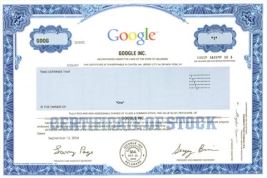 As I was saying on 2.6.15, if you never spend any money on savings, on
the future, you're going to be in trouble in about 30 years, because
you never used any of your money to make the future better. You never
put any of your income away to invest, you spent it all now, so the now
is pretty good, but the future is pretty much exactly the same as it is
now. Is that how your music feels? That's what happens if you only
play or sing songs as the way you get better. And that's what happens
if you never spend time working on exercises and theory, your fingers
and voice and your brain never get to come in and contribute and help
you play and sing better and make your music easier and easier and more
and more solid.
As I was saying on 2.6.15, if you never spend any money on savings, on
the future, you're going to be in trouble in about 30 years, because
you never used any of your money to make the future better. You never
put any of your income away to invest, you spent it all now, so the now
is pretty good, but the future is pretty much exactly the same as it is
now. Is that how your music feels? That's what happens if you only
play or sing songs as the way you get better. And that's what happens
if you never spend time working on exercises and theory, your fingers
and voice and your brain never get to come in and contribute and help
you play and sing better and make your music easier and easier and more
and more solid.
Like a good investment, learning music theory and practicing exercises may take longer to pay off, but an hour of exercises or theory study pays off bigger than an hour of working on songs. Exercises, scales, arpeggios, chords train your muscles to help you play, the same for singers. They are perhaps comparable to investing in a CD, a certificate of deposit. Work on that exercise for 3 or 6 or 12 months and it'll pay off pretty well. Your hands and fingers and the vocal mechanism will obey you, they will be much more skillful and capable, opening the doors for you to play/sing the thing you want instead of holding you back. If investments in songs are a 1 to 1.1 ratio (1 hour work equals 1 hour and 6 minutes progress) then work on exercises is maybe 1 to 2: one hour working on exercises produces 2 hours of progress.
And what about the mistrusted, neglected 3rd leg of music learning - music theory? Poor, unloved little theory - nobody likes him. Sad. But that's the Google stock, baby, probably 1 to 5 ratio for investment - 1 hour effort equals 5 hours progress. The probable reason most people don't do music theory is because 6 months to a year of music theory work is just learning to read music and once that's accomplished there seems to be no other point. So many people, including fairly accomplished classical musicians, stop right there and confuse reading notes with understanding music theory. It's not even close. Putting your finger on the right note for the right length of time doesn't mean you know what the heck you're doing or why you did it
Somewhere around the year mark, music theory starts paying off for a musician. As one example of what having your brain involved in your music does, understanding music theory unlocks your ear. Right now all your ear tells you is right note, wrong note, that sounds good, that sucks. Doesn't tell you what to do, how to fix it or find it. A person who knows their scales and the chords that come from them can know 1 (one) note of a song and figure out all the other notes and chords without writing a single note down. And if they've done it a lot that'll be easy, too. This is one example of dozens of areas where music theory will step up your singing and playing beyond where it should be given how long your been working on it.
So for most people, a balanced musical practice portfolio is 50% of your effort is on your songs (the real deal, this is why you want to make music), 25% on exercises (my hands and voice are skillful and do what I need them to do), and 25% on music theory (knowledge, eartraining, rhythm training - my brain explains what my ears hear and instruct my hands efficiently).

